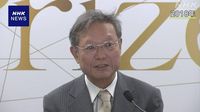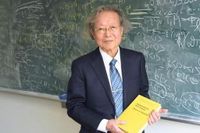On March 26, 2025, the Norwegian Academy of Science and Letters announced that the prestigious Abel Prize will be awarded to Masaki Kashiwara, a specially appointed professor at the Kyoto University Research Institute for Mathematical Sciences. At 78 years old, Kashiwara becomes the first Japanese recipient of this esteemed award, often referred to as the "Nobel Prize of Mathematics." His groundbreaking work in establishing a new theory that serves as the foundation for algebraic analysis has garnered significant recognition.
The Abel Prize, founded by the Norwegian government, honors mathematicians who have made outstanding contributions to the field. Since its inception in 2003, this marks the first time a Japanese mathematician has been selected for the award. The academy praised Kashiwara, stating he has "proved surprising theorems in a way that no one had imagined, and is truly a mathematical pioneer." This recognition reflects not only his individual achievements but also the growing influence of Japanese mathematics on the global stage.
In a video released by the academy, Kashiwara expressed his astonishment upon receiving the news of the award. "I had no idea at all. I was very surprised," he said with a smile. "It's an honor. I'm overwhelmed." His humility and gratitude resonate with many, as he has dedicated over five decades to advancing mathematical research.
Kashiwara was born in Ibaraki Prefecture in 1947. He pursued higher education at the University of Tokyo, where he made significant strides in the field of mathematics. In 1970, he established the theory known as "D-modules" in his master’s thesis, which has since had a profound impact on algebraic analysis and related fields. Although his original thesis was written in Japanese, it gained international acclaim, influencing mathematicians worldwide.
After serving as an associate professor at Nagoya University, Kashiwara became a professor at the Kyoto University Research Institute for Mathematical Sciences in 1984. His research has addressed complex problems that have long puzzled mathematicians, including the Riemann-Hilbert conjecture, which he proved using D-module theory. This accomplishment alone has solidified his reputation as a leading figure in mathematics.
In addition to the Abel Prize, Kashiwara's accolades include the Chern Medal, awarded in 2018, making him the first Japanese recipient of this prestigious international award. He also received the Order of the Sacred Treasure, Gold Rays with Neck Ribbon in 2020 for his contributions to science and education.
The Abel Prize award ceremony is set to take place in May 2025 at the University of Oslo in Norway, where Kashiwara will be honored alongside other distinguished mathematicians. The prize comes with a monetary award of 7.5 million Norwegian kroner, approximately 100.7 million yen, further underscoring the significance of this achievement.
As the world of mathematics continues to evolve, Kashiwara's contributions serve as a testament to the importance of innovation and perseverance in the field. His work not only enriches mathematical theory but also inspires future generations of mathematicians, particularly in Japan, where interest in advanced mathematics is growing.
In the wake of this historic announcement, Kashiwara's colleagues and students have expressed their pride and admiration. His legacy as a pioneer in algebraic analysis is now firmly established, and his story serves as an inspiration to many aspiring mathematicians around the globe.
With the Abel Prize recognizing Kashiwara's exceptional contributions, it highlights a significant moment in the history of mathematics, particularly for Japan. His accomplishments remind us that the pursuit of knowledge knows no boundaries and that remarkable achievements can arise from dedication and creativity.
As the mathematical community looks forward to the award ceremony in May, there is a sense of excitement and anticipation surrounding Kashiwara's recognition. It is a celebration not only of his individual achievements but also of the rich tradition of mathematics in Japan and its growing impact on the global stage.



